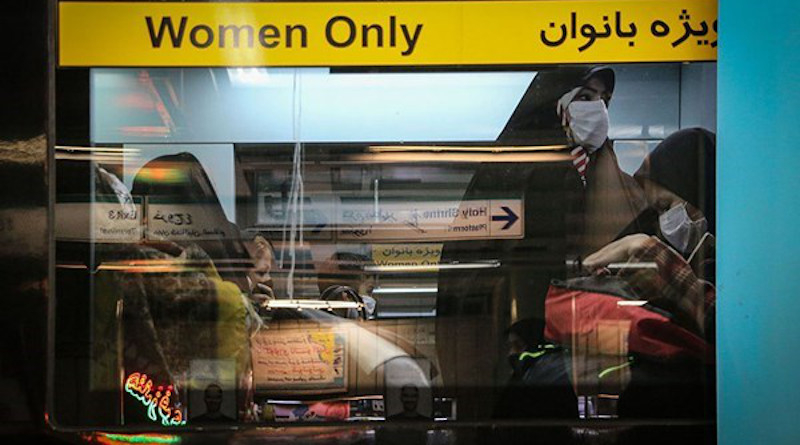How Iran Is Cracking Down On The Truth On Coronavirus – OpEd
By Arab News
By Dr. Majid Rafizadeh*
Two important organizations in Iran have been mainly responsible for the regime’s crackdown on any individual or institution that attempts to reveal accurate information about the current coronavirus situation in the country, how the virus spread there, and how the Islamic Republic has become a major center of infection. These two organizations are the Islamic Revolutionary Guard Corps (IRGC) and Ettela’at, aka the Ministry of Intelligence and Security (MOIS).
It seems rational that the Ministry of Health should be in charge of providing information about the coronavirus outbreak, but the IRGC and its intelligence agents have taken over the coronavirus file. They are reportedly present at hospitals, attending meetings among medical staff, and informing them what they are allowed to reveal and what they are banned from disclosing to the public, the media and the international community.
Not only are IRGC and MOIS members controlling the health authorities, they are also cracking down on journalists and even lawmakers who dare to defy the rules. For example, Nahid Khodakarami, the head of the Health Commission of Tehran City Council, recently disclosed how she was approached by Iran’s spy unit: “Yesterday, I said that in Tehran it is possible that 10,000 people have been infected with coronavirus. The IRGC intelligence unit called me and complained. They asked, ‘Why did you provide this number?’ I said, ‘Sir, how long are you going to cover this up? These numbers are being talked about in society and my saying it calms the situation. Let’s be transparent with the people. We shouldn’t make this disease a security matter. You don’t need to call me and ask me why I divulge some figures. I merely provided some experts’ opinions.’ The IRGC intelligence official told me that I should refer the matter to the Health Ministry. I said, ‘OK, we should increase the pressure on the Health Ministry to be more transparent and to openly express themselves and tell people the facts; otherwise our reputation in the world will be eroded.’”
Even some of Iran’s newspapers pointed to the restrictions that have been imposed on them concerning the virus. The state-run daily Resalat wrote: “With regards to the number of infected nurses, we cannot release any figures. The statistics are completely security-related and cannot be revealed. Even the heads of hospitals might not know the number of coronavirus victims. Even if a victim goes to the hospital, the statistics are not given to the hospital supervisor. There is a special private channel and no one but the Health Ministry officials are aware of the numbers.”
The IRGC and MOIS are also utilizing the judiciary by imprisoning people to further prevent the leaking of information. Hassan Norouzi, the speaker of the Iranian parliament’s legal and judicial committee, said last month that those who “disseminate fake news regarding coronavirus” will be sentenced to between one and three years in prison, as well as flogging.
But why have the IRGC and MOIS taken over and been instructing hospitals, medical staff, journalists and politicians on the coronavirus? One of the main reasons is that they view the issue as a matter of national security, which could endanger the hold on power of the political establishment.
Many Iranians were already dissatisfied and disaffected with the regime’s actions. The high rate of inflation is ravaging Iran’s economy and hurting the ordinary people, who have also been frustrated with the widespread corruption, mismanagement of the economy, and expenditure on terror and militia groups across the region.
In the last few years, several major nationwide protests have shaken the theocratic establishment, with many expressing their desire for regime change through various slogans and chants, such as: “Death to the regime,” “Death to Khamenei,” and “Hard-liners and moderates, the game is over.”
As a result, the regime’s authorities are concerned that the coronavirus outbreak and its magnitude in Iran could show their weakness and provide an opportunity for millions of Iranians to pour on to the streets and seek regime change once again. Their mishandling of the crisis, lies and cover-up are further infuriating the disaffected nation. As the head of Yaftabad Hospital in Tehran stated on March 1: “Our primary problem in this crisis was that we did not transmit the right information to the people and we don’t have the right information. Treating everything as a political and security matter, we endanger people’s health. It has always been this way.”
It is obvious that the IRGC is viewing the coronavirus as a matter of national security that could endanger the mullahs’ rule. That is why the regime has been cracking down on those who leak facts about the virus.
- Dr. Majid Rafizadeh is an Iranian-American political scientist. He is a leading expert on Iran and US foreign policy, a businessman and president of the International American Council. Twitter: @Dr_Rafizadeh

